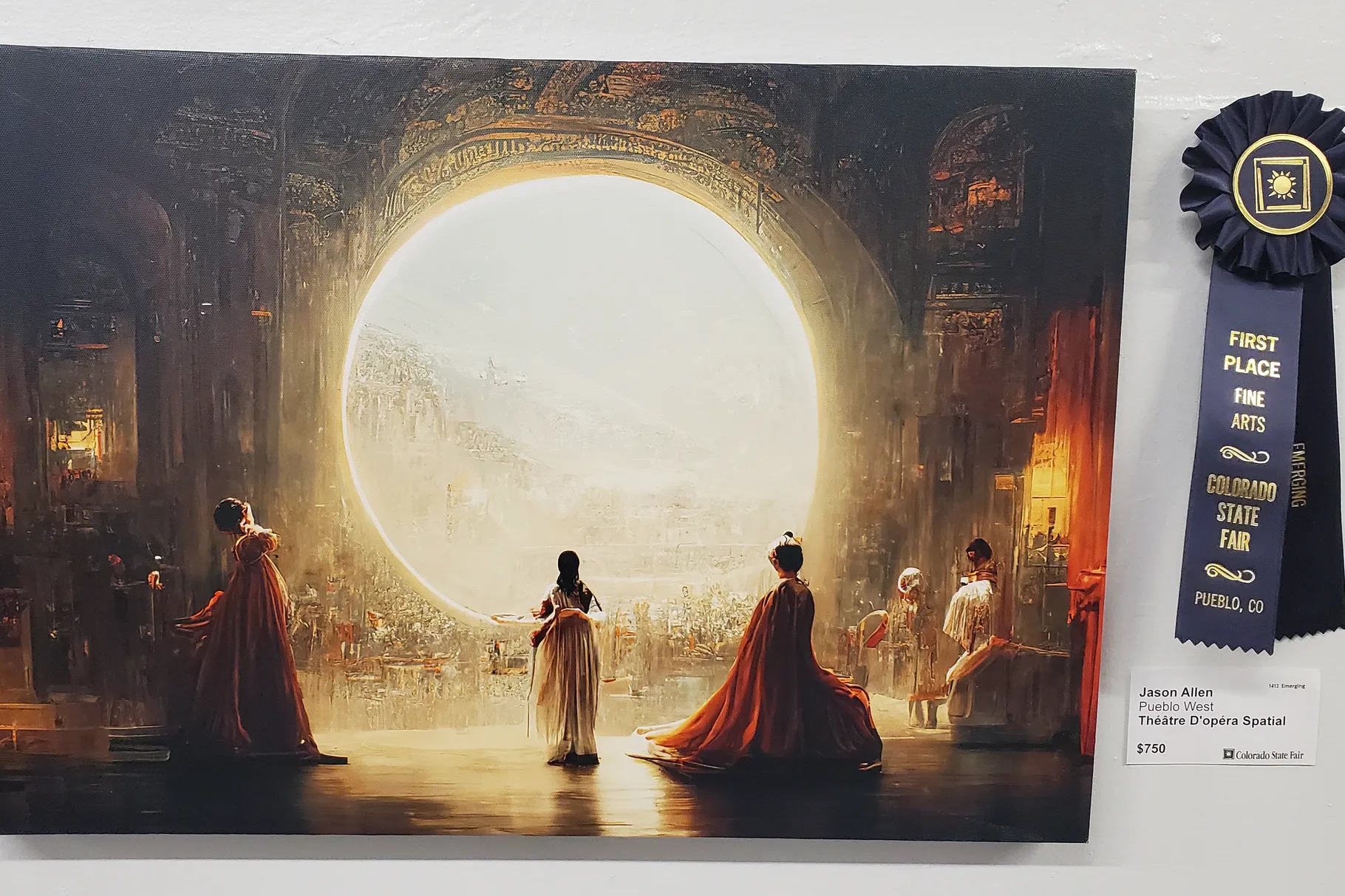
Théâtre D’opéra Spatial by Jason Allen Jason Allen via Discord
The technology behind artificial intelligence-aided art has long been in development, but the era of artificial intelligence-aided art feels like a sudden arrival. Since the recent release of DALL‑E and other image-generation tools, our social-media feeds have filled up with elaborate artworks and even photorealistic-looking pictures created entirely through the algorithmic processing of a simple verbal description. We now live in a time, that is to say, where we type in a few words and get back an image nobody has ever before imagined, let alone seen. And if we do it right, that image could win a blue ribbon at the state fair.
“This year, the Colorado State Fair’s annual art competition gave out prizes in all the usual categories: painting, quilting, sculpture,” reports the New York Times’ Kevin Roose. “But one entrant, Jason M. Allen of Pueblo West, Colo., didn’t make his entry with a brush or a lump of clay. He created it with Midjourney, an artificial intelligence program that turns lines of text into hyper-realistic graphics.” The work, Théâtre D’opéra Spatial, “took home the blue ribbon in the fair’s contest for emerging digital artists,” and it does look, at first glance, like an impressionistic and ambience-rich past-future vision that could grace the cover of one of the better class of science-fiction or fantasy novels.
Reactions have, of course, varied. Roose finds at least one Twitter user insisting that “we’re watching the death of artistry unfold right before our eyes,” and an actual working artist claiming that “this thing wants our jobs.” Allen himself provides a helpfully brash closing quote: “This isn’t going to stop. Art is dead, dude. It’s over. A.I. won. Humans lost.” Over on Metafilter, one commenter makes the expected reference: “It has a sort of Duchamp-submitting-Fountain vibe, only in reverse. Instead of the proposition being that the jury would wrongly fail to recognize something trivial and as art, now we have the proposition that the jury would wrongly fail to recognize that the art is something trivial.”
However little desire you may have to hang Théâtre D’opéra Spatial on your own wall, a moment’s thought will surely lead you to suspect that, on another level, the conditions that brought about its victory are anything but trivial. Midjourney, as the original poster on Metafilter explains, “can be run on any computer with a decent GPU, a Google collab, or run through their own servers.” The ability to generate more-or-less convincing works of art (often littered, it must be said, with the bizarre visual glitches that have been the technology’s signature so far) out of just a few keystrokes will only become more powerful and more widespread. And so the “real” artists must find a new form too vital for the machines to master — just as they’ve had to do all throughout modernity.
Related content:
Discover DALL‑E, the Artificial Intelligence Artist That Lets You Create Surreal Artwork
The Long-Lost Pieces of Rembrandt’s Night Watch Get Reconstructed with Artificial Intelligence
AI & X‑Rays Recover Lost Artworks Underneath Paintings by Picasso & Modigliani
Artificial Intelligence Brings Salvador Dalí Back to Life: “Greetings, I Am Back”
Based in Seoul, Colin Marshall writes and broadcasts on cities, language, and culture. His projects include the Substack newsletter Books on Cities, the book The Stateless City: a Walk through 21st-Century Los Angeles and the video series The City in Cinema. Follow him on Twitter at @colinmarshall, on Facebook, or on Instagram.


Leave a Reply